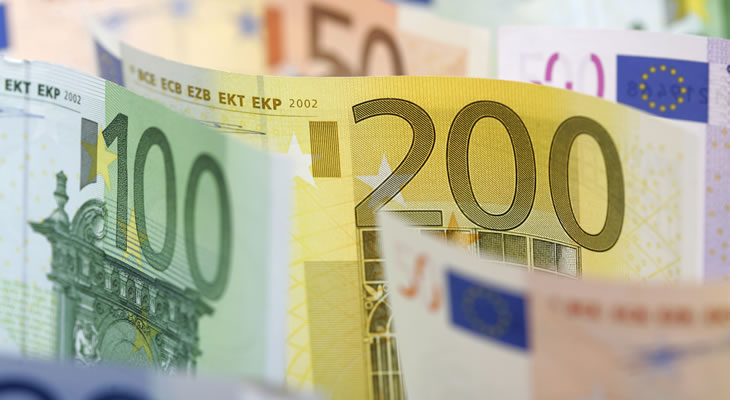Optimistic Eurozone Sentiment Surveys Limit Pound to Euro (GBP/EUR) Exchange Rate Strength
A positive round of ZEW economic sentiment surveys encouraged the Pound to Euro (GBP/EUR) exchange rate to trend lower, with the appeal of the single currency improving.
Investors were pleased to find that economic confidence within both Germany and the wider Eurozone has picked up on the month in January, boosting EUR exchange rates.
With the Eurozone economy continuing to pick up pace at the start of 2018 the European Central Bank (ECB) is likely to be given greater cause for confidence, raising the odds of a return to a monetary tightening bias in the coming months.
While Tuesday’s raft of UK data also proved encouraging this was not enough to shore up the GBP/EUR exchange rate, which remained on a narrow downtrend.
Growing UK Business Optimism Fails to Boost GBP/EUR Exchange Rate
The GBP/EUR exchange rate failed to capitalise even as UK public sector net borrowing proved more limited than forecast in December, with new government debt rising just 1 billion on the month as opposed to an expected increase of 4.3 billion.
This suggests that the budget deficit is not widening as markets had feared, in spite of the increasing financial pressures on the Conservative government.
While reduction of the trade deficit limits the UK economy’s exposure to a downturn in trade conditions, however, the threat of Brexit-based disruption nevertheless remains.
January’s CBI industrial trends survey also painted a more optimistic picture of the domestic outlook, with sentiment amongst manufacturing firms continuing to improve.
However, the survey was not uniformly positive news, as firms expressed some concern over an ongoing skills shortage.
GBP EUR Exchange Rate Volatility Forecast on UK Wage Data
Tomorrow’s UK employment and wage data could offer the GBP/EUR exchange rate a stronger rallying point, though, if the labour market shows fresh signs of tightening.
Particular interest, as usual, will fall on the latest average weekly earnings figure, which is expected to show no change in the three months to November.
Unless wage growth begins to pick up more significantly the upside potential of GBP exchange rates will remain limited, with the Bank of England (BoE) encouraged to maintain a more dovish policy outlook.
As Tim Riddell, research analyst at Westpac, commented:
‘The BoE does not meet until 8th Feb and so will be able to assess further labour data, initial Q4 GDP data as well as January PMIs. Saunders, known to be on the hawkish side, has indicated potential upside risks, but also Brexit concerns and a very cautious stance for BoE. However, recent strong production data belied weakness in construction, exemplified in Carillion’s failure. Housing reports are weak and could weigh on households and so maintain BoE’s glacial guidance.’
German Coalition Worries Continue to Limit Euro Exchange Rate Upside
Confidence in the Euro remains somewhat fragile given the lingering sense of uncertainty that continues to hang over the German political landscape, limiting the downside of the GBP/EUR exchange rate.
Even though progress has been made towards a working coalition between Angela Merkel’s CDU and the SPD there is still ample potential for the deal to fall through, to the detriment of the Euro.
As Dirk Schumacher, research analyst at Natixis, noted:
‘Two more hurdles remain at this stage. First, SPD and CDU/CSU need to agree on a so-called coalition contract. The flexibility on both sides is limited and a failure to reach consensus cannot be ruled out. Second, SPD party members will have to approve the final agreement. There is a high degree of uncertainty with respect to the outcome of this vote. Hence, early elections remain a clear possibility at this point.’
However, if the parties are able to come to an agreement and form a new ‘grand coalition’ this could see the GBP/EUR exchange rate slump once again.


Comments are closed.